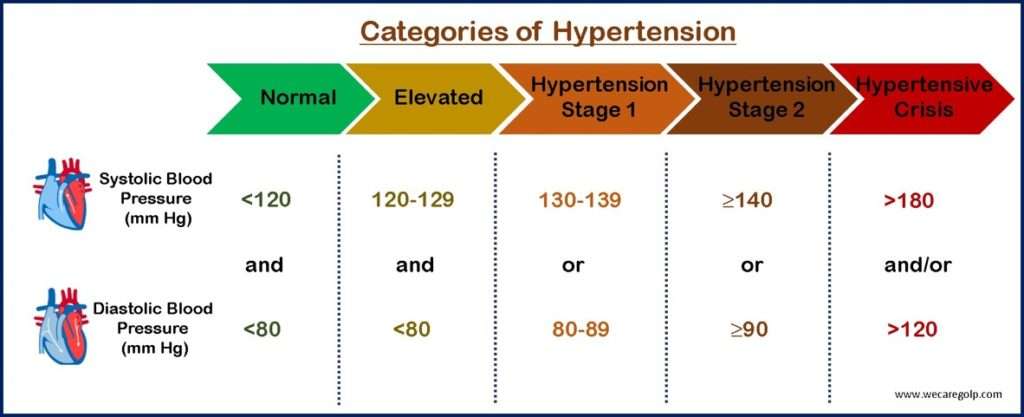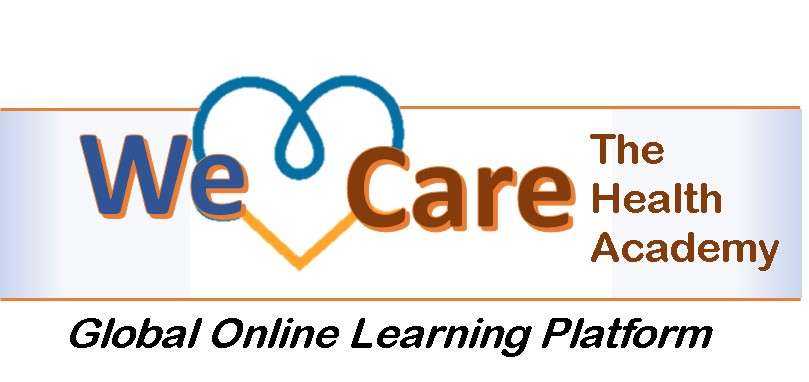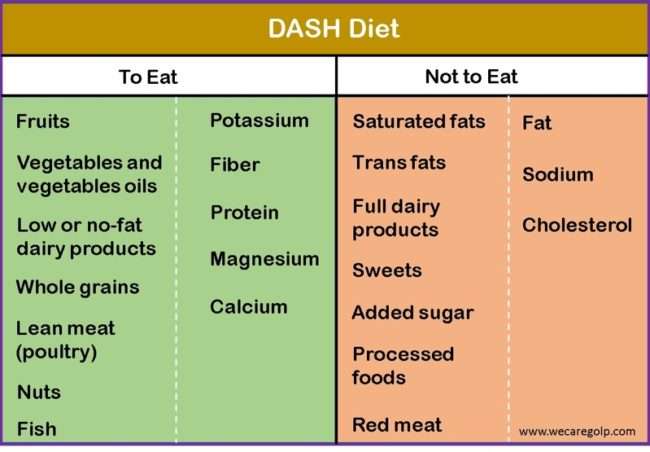Introduction
The DASH diet is a well-designed approach to treat and prevent hypertension. DASH stands for Dietary Approaches to Stop Hypertension.
- Blood pressure is the force exerted by blood against the wall of the arteries that carry blood from the heart to the brain and the whole body.
- Hypertension or high blood pressure is a serious medical condition where the blood pressure is consistently very high.
- According to WHO World Health Statistics 2012, 45% of coronary heart disease deaths and 51% of stroke deaths were caused by high BP globally.
- High blood pressure increases the risks of heart, brain, kidney, and other diseases.

- DASH diet is developed in research sponsored by the National Institute of Health (NIH) in 1992 to decrease blood pressure without the use of medication.
- The DASH eating plan does not recommend any special foods.
- It emphasizes
- Fruits
- Vegetables and vegetable oils
- Low or no-fat dairy products
- Whole grains
- Nuts
- Lean meat (poultry)
- Fish
- It discourages foods high in
- Saturated fats
- Trans fats
- Full dairy products
- Sugar-sweetened beverages and sweets
- Processed foods
- Red meat.
- Numerous studies have shown that adopting a diet that prioritizes fruits, vegetables, healthy grains, and low-fat dairy products can significantly lower blood pressure and low-density lipoprotein (LDL) cholesterol.
- It has significant effects on blood pressure. Additionally, it also offers other health benefits, for example, lower cholesterol, prevent diabetes mellitus and osteoporosis, and lose weight.
- Studies have revealed that it is linked to a lower risk of several types of cancer, heart diseases, stroke, heart failure, kidney stones, and reduces the risk of developing diabetes mellitus.
- DASH encourages eating a variety of foods rich in potassium, fiber, protein, magnesium, and calcium and less in fats, sodium, and cholesterol.
Types of the DASH Diet
The DASH diet has two variants depending on its sodium content.
- The standard DASH diet: maximum of 2300 mg sodium per day.
- Low-sodium DASH diet: maximum of 1500 mg sodium per day.
DASH Diet and Sodium
- DASH diet suggests a decreased intake of sodium, i.e., no more than 2300 mg/day. That is approximately the amount of sodium in 1 teaspoon of table salt.
- It directs to limit salt intake to 1500 to 2300mg/day.
- The low-salt version of the DASH diet recommends no more than 1500 mg of sodium per day.
- The American Heart Association recommends 1,500 mg daily sodium intake as an upper limit for all adults.
- 1500 mg of sodium decreases blood pressure even further than 2300 mg of sodium per day.
Recommended Servings
The following diet plan shows an example of daily and weekly servings that meet the DASH eating plan targeting 2000 calories a day. The number of servings may increase or decrease depending on individual calorie needs.
General guidelines
- 6-8 servings of grains/day
- 1 serving: a slice of whole/ wheat bread OR ½ cup of high-fiber cereal OR ½ cup of brown rice
- 4-5 servings of vegetables/day
- 1 serving: 1 cup of raw vegetables OR ½ cup of cooked vegetables OR ½ cup of raw vegetable juice
- 4-5 servings of fruits/day
- 1 serving: ¼ cup of dried fruits OR ½ cup of fresh, frozen, canned fruit
- 2-3 servings of low-fat dairy/day
- 1 serving: 1 cup of milk OR 1 cup of yogurt OR 1.5 oz. of cheese
- 6 one-ounce or fewer servings of lean meat /day
- 1 serving: 1 oz. of meat OR 1 egg of lean meat (poultry and fish)
- 4-5 servings of nuts/week (nuts, seeds, beans)
- 1 serving: ⅓ cup nuts OR 2 tablespoons seeds OR ½ cup beans
- 2-3 servings of fats/day
- 1 serving: 1 teaspoon of vegetable oil (e.g., olive oil)
- Skip sugary drinks/ limit sweets to 5 or fewer servings/week
- 1 serving: 1 tablespoon sugar, jelly, or jam, 1/2 cup sorbet, or 1 cup lemonade
Advantages and Disadvantages
Advantages
- It has numerous health benefits (e.g., lower blood pressure, improved cardiovascular and brain health, and positive effects on chronic diseases).
- It aids in weight loss.
- It is easily accessible. Required foods are easily available in any supermarket.
- It designs for lifelong wellness.
- It maintains nutritional balance.
- It is flexible.
Disadvantages
- The DASH diet is difficult to maintain.
- It may be hard to follow.
- People who are used to eating fast foods or have little time to prepare or cook healthy foods might find it difficult to adhere to the plan.
- It can be a little expensive.
- The DASH diet daily menu will create individually based on the permitted servings. based on the permitted servings. Those who are not accustomed to meal planning or cooking may require more detailed instructions.
- Besides, the DASH diet may not suitable for patients with chronic heart failure, uncontrolled diabetes mellitus type II, lactose intolerance, food allergies, and celiac disease.
- Due to the high fiber content of plant foods such as fruits, vegetables, and whole grains, some people may feel gas and bloating when starting the diet.
DASH Diet and Weight Loss
- Studies have revealed that the DASH diet aids in losing weight as it limits the consumption of saturated fat, trans fat, sugary foods, and processed foods.
- However, if the goal is to lose weight on the DASH diet, one should go on a calorie-deficit diet.
- To put it another way, those who have to lose weight on the DASH diet will instruct to consume fewer calories than they can burn.
Health Benefits of the DASH Diet
- It lowers blood pressure.
- It aids in strengthening bones and preventing osteoporosis because of the increased calcium intake from dairy products and green leafy vegetables.
- It lowers diabetes risk.
- It helps to reduce high cholesterol.
- It lessens the risk of cardiovascular disease.
- It decreases the chances of cancer.
- It helps in weight loss.
- It reduces the risk of gout by decreasing uric acid levels in patients with hyperuricemia.
- It improves renal health.
Contraindications
- There are no special contraindications for the DASH diet.
- However, it is highly recommended not to follow the DASH diet without medical supervision if there are any medical conditions such as chronic kidney disease, chronic liver disease, celiac disease, and those who are prescribed renin-angiotensin-aldosterone system antagonists.
DASH Diet Tips
- Avoid foods stored using salt.
- Do not use salt at the table.
- Avoid alcohol consumption.
- Select fresh, unprocessed foods. Packaged foods, canned goods and frozen meals are often high in sodium.
- Encourage the consumption of plenty of foods rich in potassium, magnesium, and calcium.
- Limit the consumption of foods rich in saturated fats, trans fats, and cholesterol.
- Reduce excessive glycemic loads (too many carbohydrates).
- Limit sweets and red meat (better to go for white meat).
- Make the right amount of milk to low-fat, skim milk or yogurt.
- Make the right amount of whole grains.
- Read the food labels and choose low-sodium or no-salt-added options.
- Cut back on processed and high-sodium foods.
Summary
- The DASH diet is an easy and effective way to lower blood pressure.
- It is a healthy eating plan that emphasizes foods rich in potassium, magnesium, calcium, fiber, and protein.
- It limits foods high in saturated fats, trans fat, cholesterol, added sugars, red meat, and sodium.
- Several studies have shown that a significant reduction in blood pressure can be achieved by the effective use of the DASH diet.
- In addition, the DASH diet reduces the risk of cardiovascular disease, diabetes, gout, cancer, and kidney disease.
References
- Ishikawa Y, Laing EM, Anderson AK, et al. Adherence to the Dietary Approaches to Stop Hypertension (DASH) diet is associated with low levels of insulin resistance among heart failure patients. Nutrition, Metabolism and Cardiovascular Diseases. 2022;32:1841-1850.
- Soltani S, Shirani F, Chitsazi MJ, Salehi-Abargouei A. The effect of dietary approaches to stop hypertension (DASH) diet on weight and body composition in adults: a systematic review and meta-analysis of randomized controlled clinical trials. Obesity. 2016;17:442–454.
- Saneei P, Salehi-Abargouei A, Esmaillzadeh A, Azadbakht L. Influence of dietary approaches to stop hypertension (DASH) diet on blood pressure: a systematic review and meta-analysis on randomized controlled trials. Nutrition Metabolism Cardiovasc Diseases. 2014;24:1253–1261. DOI:https://doi.org/10.1016/j.numecd.2014.06.008
- Siervo M, Lara J, Chowdhury S, Ashor A, Oggioni C, Mathers JC. Effects of the dietary approach to stop hypertension (DASH) diet on cardiovascular risk factors: a systematic review and meta-analysis. Br J Nutr. 2015;113:1–15.
- https://medlineplus.gov/ency/patientinstructions/000784.htm
- https://www.medicinenet.com/high_blood_pressure_hypertension/article.htm
- https://www.nhlbi.nih.gov/education/dash-eating-plan
- https://www.verywellfit.com/dash-diet-pros-and-cons-3973825

